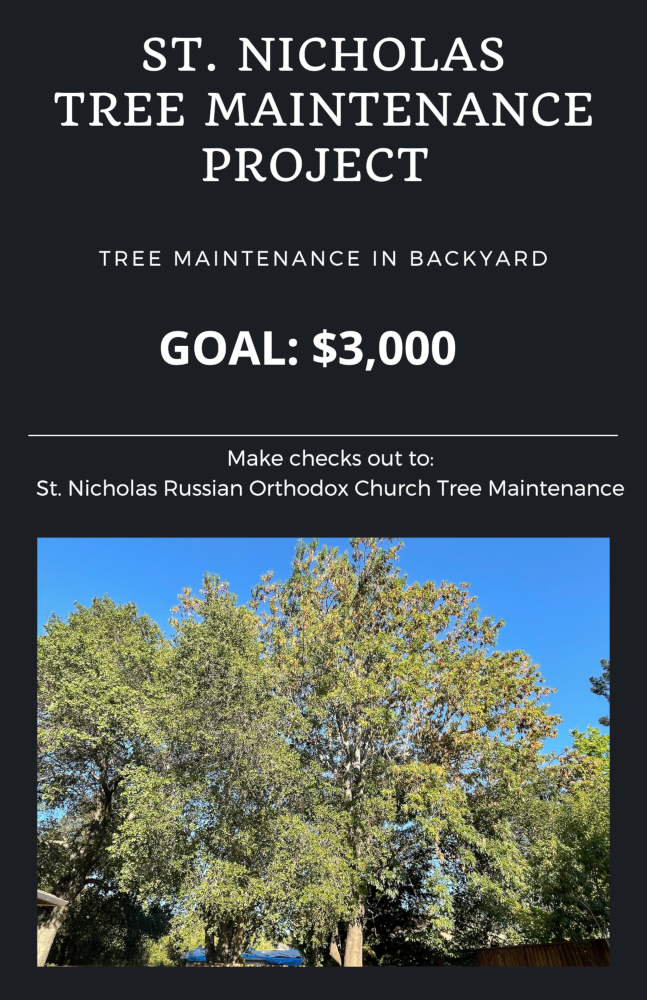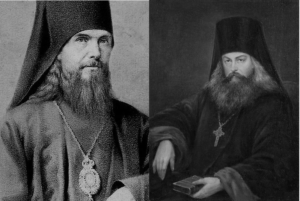
Focus on the Faith
New Year Looks to Theophany
The New Year is upon us. Let us rejoice and be glad that 2021 is behind us!
In the first week of January we have three celebrations: The Circumcision of Christ, St. Basil the Great, and the Sunday before Theophany. In the ancient church, Theophany was regarded as more important than Christ's Nativity. How can that be? Because at Christ's birth the announcement is made of God's coming into the world for it's restoration. At Theophany, that work of restoration, actually begins!
St. Paul has written: “For the creation waits with eager longing for the revealing of the sons of God; for the creation was subjected to futility, not of its own will but by the will of him who subjected it in hope; because the creation itself will be set free from its bondage to decay and obtain the glorious liberty of the children of God. We know that the whole creation has been groaning in travail together until now; and not only the creation, but we ourselves, who have the first fruits of the Spirit, groan inwardly as we wait for adoption as sons, the redemption of our bodies.” (Romans 8: 19-23.)
We, as Christians, are engaged in this struggle as co-workers with God, to reclaim the fallen world and fallen nature for the Kingdom. We often talk about this in terms of our own salvation, but the Church, addressing all of creation in a holistic manner, also reaches out and reclaims a bit here and a bit there of creation in general. We do this in order that we might restore the usefulness of creation for working out our own salvation. Hence, we bless anything that might help us in our salvation - and by blessing it we reclaim it for the Kingdom of God. We bless water, we bless grapes and fruit, we bless cheese, eggs, meat, we bless wheat wine and oil, we bless all kinds of things, reclaiming them for sacred use, reclaiming them for God’s Kingdom.
There are few things more vital to our lives than our homes. In our homes we pray, we work, we rest, we sleep, we converse with loved ones, we order our lives, we work out our marriages, raise our children, etc. Is there a more important place for us to reclaim for the Kingdom of God ?- or is it better to continue living in a place which is occupied and influenced by the enemy? For the most effective working out of our salvation, we should drive the enemy out of our homes, and keep him at bay by our prayers, our righteous life, and the annual sprinkling by Holy Water at Theophany. Hence this annual and salutary rite of the blessing of homes at Theophany."
From the Holy Fathers and Mothers
St. John Chrysostom on the New Year (Excerpt)
“Whether you eat, whether you drink, whether you do some other thing, do all for the glory of God” [1 Cor. 10:31]. If we pray, if we fast, if we accuse, if we pardon, if we praise, if we censure, if we enter, if we exit, if we sell, if we buy, if we are silent, if we converse, if we do any thing else whatsoever, let us do all for the glory of God, and if something be not for the glory of God, neither let it be done, nor be spoken by us; but in place of a great staff, in place of arms and safeguard, in place of unspeakable treasures, wherever we might be, let us carry around this word with us, having inscribed it upon our understanding, so that doing and speaking and trafficking all things for the glory of God, we shall obtain the glory that is from him both in this world and after the journey here [i.e. after this life]. “For those that glorified me”, he says, “I will glorify” (1 Kingdoms 2:30 LXX). Not therefore with words, but also through deeds let us glorify him continually with Christ our God, because all glory befits him, honor and worship, now and always unto the ages of ages. Amen.
Orthopraxis
Theophany House Blessings
Houses are traditionally blessed with "Theophany water" each year. A house can be blessed at any time, but the usual season for yearly blessings is from Theophany until the beginning of the Lenten Triodion, which begins four Sundays before Great Lent begins. This is not a hard and fast rule, but a good rule of thumb.
Normally, we would ask you to sign up for Fr. Basil's House Blessing List, but due to COVID and other factors, here instead, are intructions for a DIY house blessing!
What you will need
- Holy Water (preferably that which was blessed on Theophany)
- A "krupilla" (brush for dispersing the holy water) - you can use a clipping of rosemary or basil. You can also use the "brush" end of a prayer rope.
- A bowl or other vessel for the water
- Candles lit in your icon corner, with the family Theophany icon if you have one
Bless the House
The bowl and icon should be placed on a clean table with a cloth on it, preferably near the family icon corner. It is good for candles to be lit. The house should be clean, with all radios and televisions off.
Lights should be “on” and doors opened. The procession for the house blessing should be led by the eldest member of the house. In homes with children, it is always good for the little ones to carry an icon or a small cross and participate in the procession.
The basic order for a simple home blessing is as follows:
- The bowl of water, icon and lit candles are placed on a clean table. IF there is a censer, it may be lit.
- Begin with the Trisagion prayers as in the prayer book (O Heavenly King through the "Our Father")
- Process through the entire house, sprinkling holy water on all of the walls and suitable objects while singing the Theophany Troparion repeatedly:
Tone 1: When Thou, O Lord wast baptized in the Jordan, / the worship of the Trinity was made manifest; / for the voice of the Father bore witness to Thee, / and called Thee His beloved Son. / And the Spirit in the form of a dove / confirmed the truthfulness of His word. / O Christ our God, Who hast appeared unto us // and hast enlightened the world, glory to Thee.(It is a very good idea for the family to sing this troparion, and know it by heart.)
- Upon finishing blessing the house, the family gathers again at the table, and the senior family member should pray for all members of the family, e.g."O Lord Jesus Christ, Son of God, for the sake of the prayers of Thy most pure Mother, our holy and God-bearing fathers, and all the saints, have mercy on us and save us (names), for Thou art good and the Lover of mankind.""
- After this a short prayer:
"Through the prayers of our holy fathers, O Lord Jesus Christ our God, have mercy on us." and the service is ended:
Upcoming Events
Upcoming events this month are in the attached PDF calendar (Events are subject to change! see the online calendar for updates or the attached PDF for more info).


